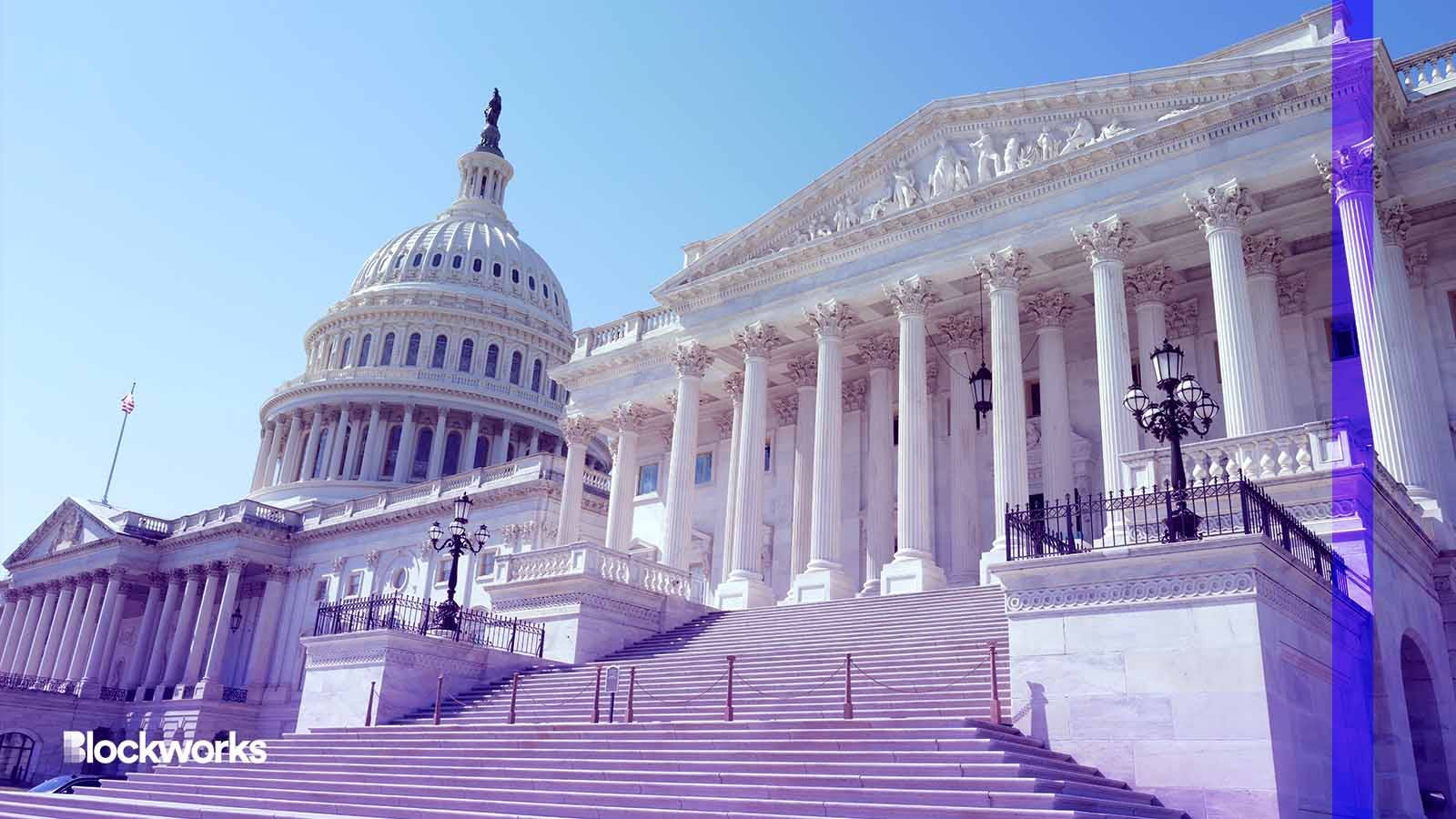Washington’s latest crypto policy push: What the industry says about new bills
It was a busy week for crypto on the Hill — one new bill drew bipartisan support but the other was teed up with the right committees

Phil Pasquini/Shutterstock modified by Blockworks
Two new crypto bills debuted in the US House of Representatives and Senate this week. Now, the industry is weighing the potential impact while lobbyists speculate over whether the proposed laws will make it out of committee.
It was a busy week for crypto on Capitol Hill. Senators from across the aisle partnered on a new bill targeting decentralized finance. Meanwhile, a group of House Republicans unveiled a highly anticipated market structure bill that seeks to strengthen the Commodity and Futures Trading Commissions’ role in crypto regulation.
Bipartisan push
The Crypto Asset National Security Enhancement Act, introduced Wednesday by Senator Jack Reed, D-R.I., and co-sponsored by Sens. Mark Warner, D-Va., Mike Rounds, R-S.D., and Mitt Romney, R-Utah, has the DeFi community concerned.
The legislation “would effectively ban DeFi development in the United States by mandating centralization,” Miller Whitehouse-Levine, CEO of the DeFi Education Fund, told Blockworks.
“Unfortunately, this approach is not only a disproportionate response to the illicit use of DeFi but also risks undermining US law enforcement’s existing insight and reach into peer-to-peer crypto activity.”
Main points from the bill include requiring the so-called “controller” of any DeFi protocol – defined in the bill as anyone who has the power to change the code – to follow anti-money laundering programs and adhere to know-your-customer (KYC) policies. DeFi protocol controllers would also be responsible for reporting suspicious activity and blocking sanctioned entities from using the protocol.
If no controller can be identified, anyone who has invested more than $25 million into developing the protocol will be responsible, the bill states.
“The proposal fails to provide a workable framework to actually address illicit finance in these sectors,” the Crypto Council for Innovation wrote in a tweet on Wednesday.
The fact that the bill is a bipartisan effort, particularly one focused on enhancing national security, gives it a better shot at getting a floor vote, Hill insiders told Blockworks.
Reed’s bill takes a more tailored approach to regulating the crypto industry, as opposed to other bipartisan “comprehensive” plans, such as the Responsible Financial Innovation Act, which Sens. Cynthia Lummis, R-Wyom., and Kristen Gillibrand, D-N.Y., reintroduced earlier this month.
Structure in focus
In the House, the Financial Innovation and Technology for the 21st Century Act, introduced Thursday, may be a Republican-only effort for now, but it has essential support from key committees.
Co-sponsors include House Agriculture Committee Chair Glenn Thompson, R-Pa., Rep. French Hill, R-Ark., and Rep. Dusty Johnson, R-S.D. Hill leads the inaugural Subcommittee on Digital Assets, Financial Technology and Inclusion, and Johnson leads the Subcommittee on Commodity Markets, Digital Assets, and Rural Development.
The House Financial Services Committee has already held a hearing on the bill based on a discussion draft released last month.
The latest bill focuses primarily on the division of responsibilities between the Securities and Exchange Commission and the CFTC. The bill grants the latter control over digital commodities markets, including exchanges and broker-dealers.
The legislation also clarifies how digital assets are classified, stating that the existence of an investment contract alone does not make a token a security. About 70% of all crypto tokens should be classified as commodities rather than securities, putting them under the jurisdiction of the CFTC, the co-sponsors wrote in a fact sheet published alongside the bill.
The Republican bill creates a more detailed registration process for digital asset broker-dealers, addressing concerns from many exchanges who argued the current process is arbitrary and lengthy.
“Under the current circumstances at the SEC…the invitation has been extended repeatedly to ‘come in and register,’ yet, like Robinhood, when Coinbase has attempted to do just that, talk about how we could register…after months and months of discussion we were simply dismissed,” Coinbase chief legal officer Paul Grewal told the House Agriculture Committee during a hearing in June.
Get the news in your inbox. Explore Blockworks newsletters:
- The Breakdown: Decoding crypto and the markets. Daily.
- 0xResearch: Alpha in your inbox. Think like an analyst.






